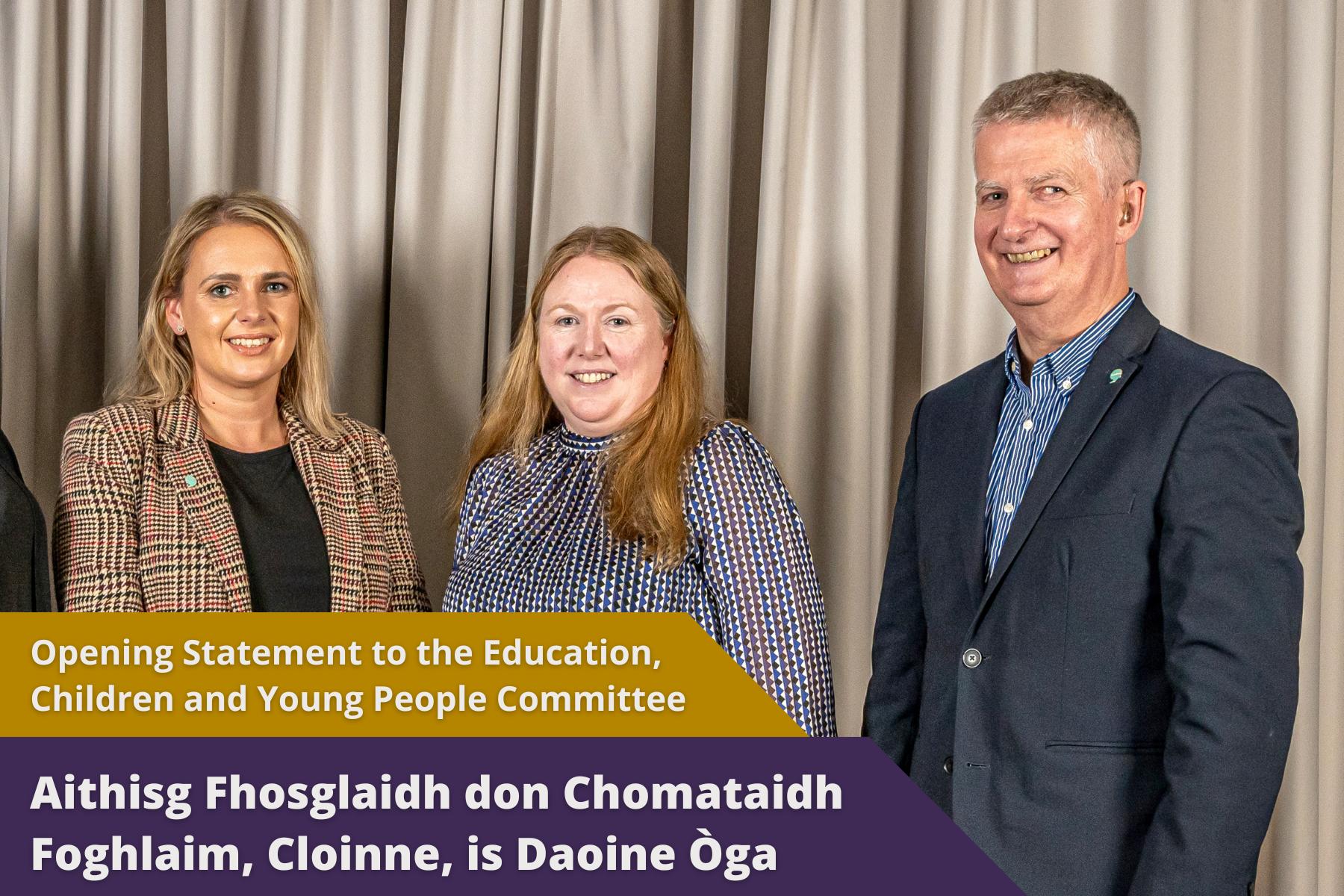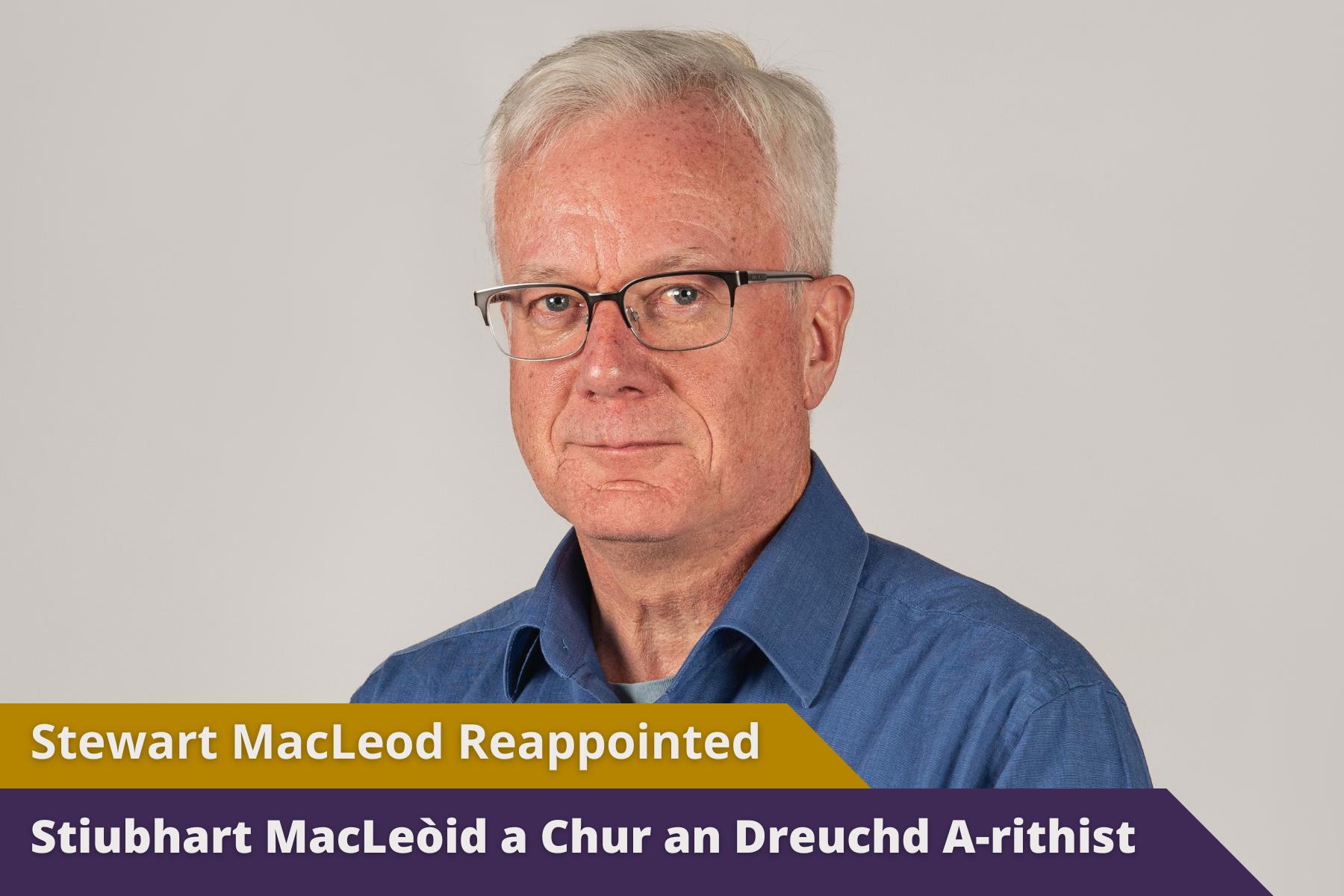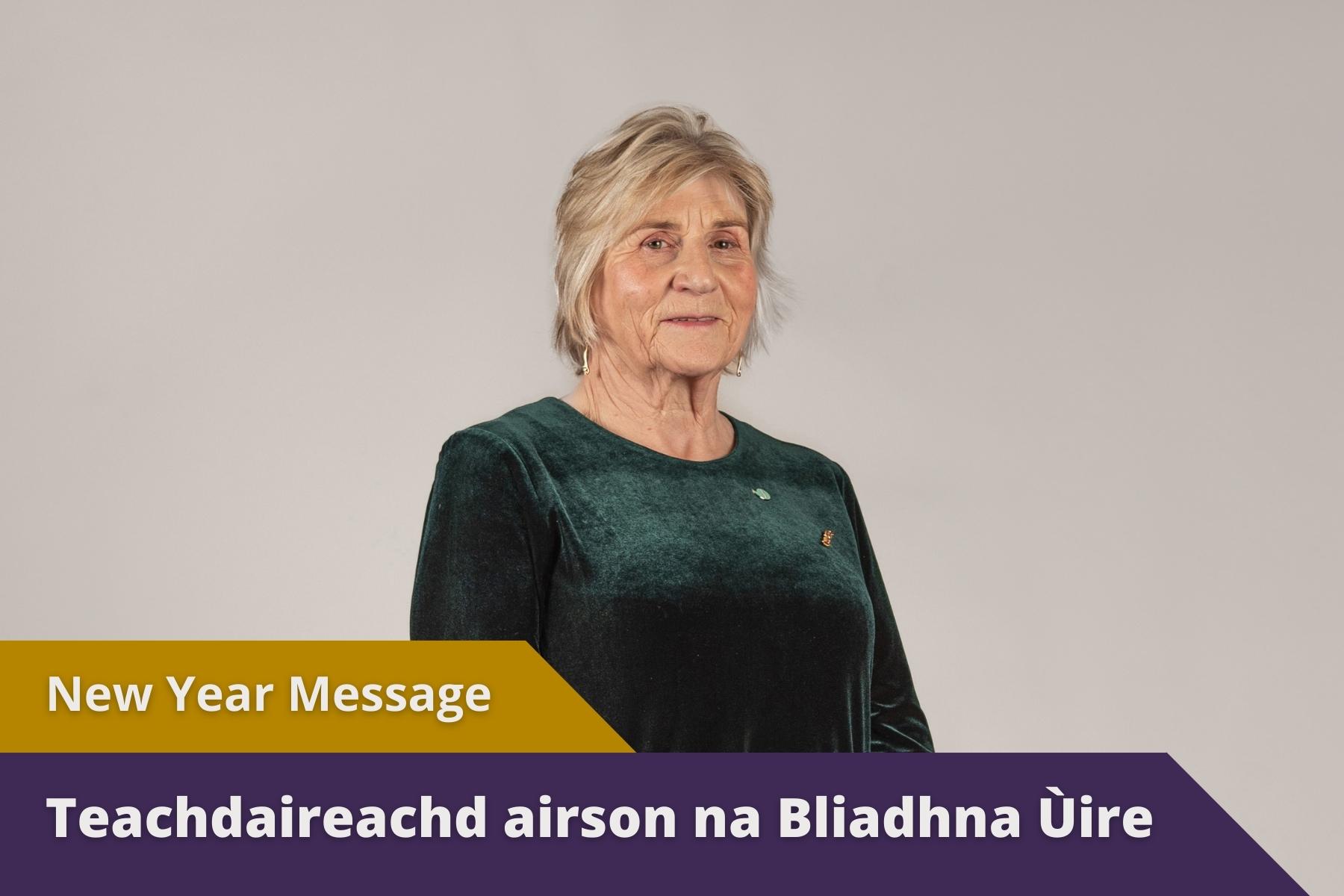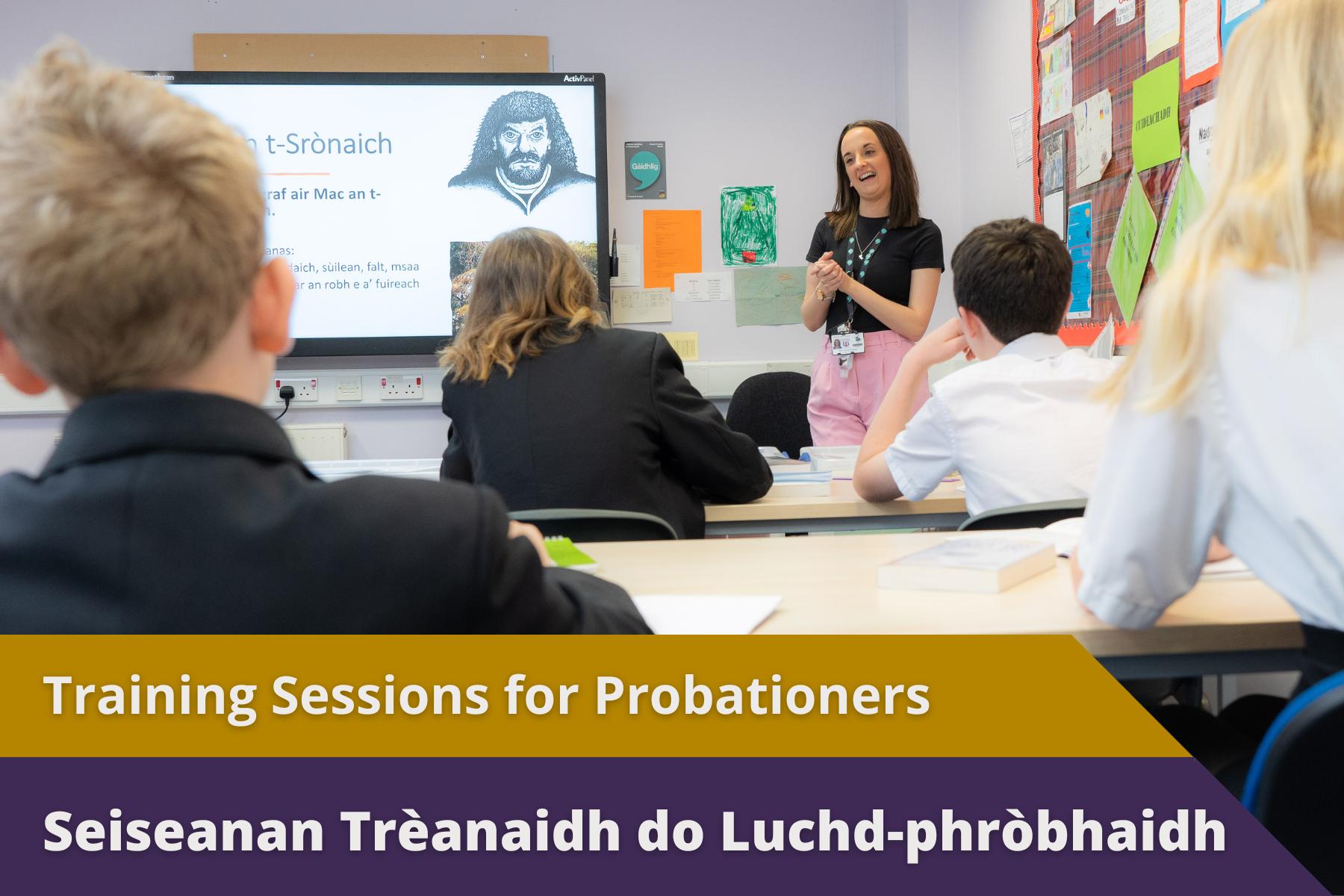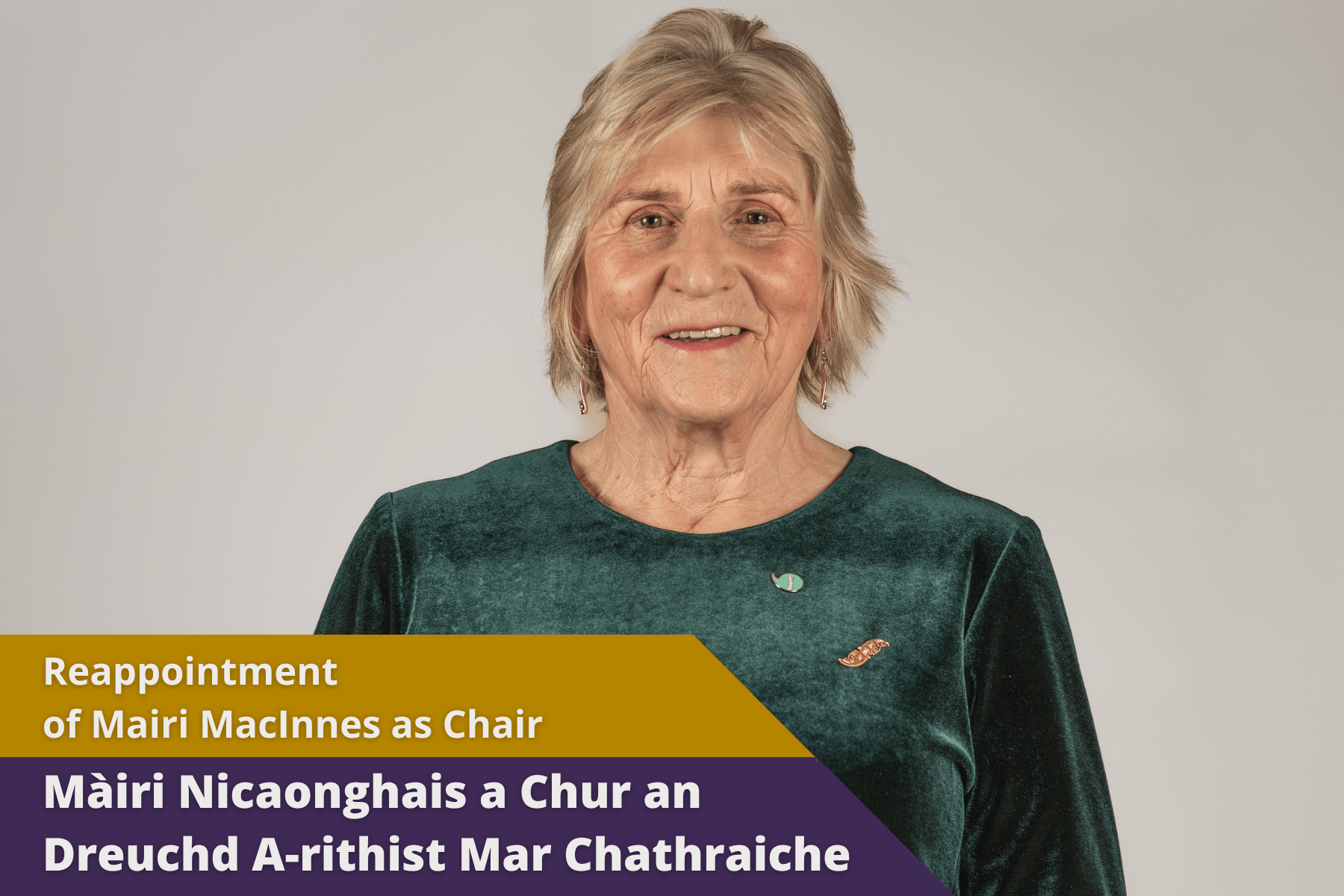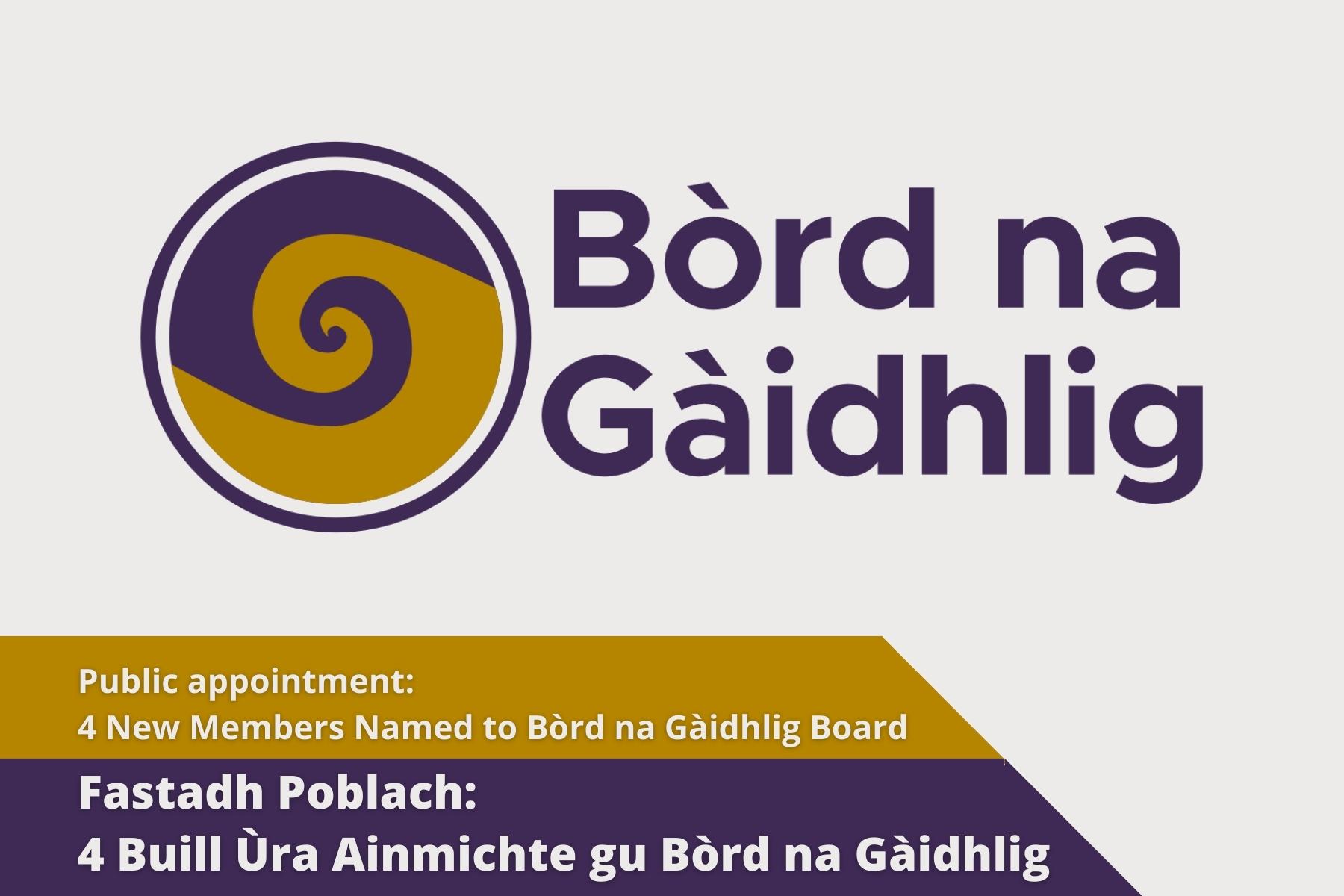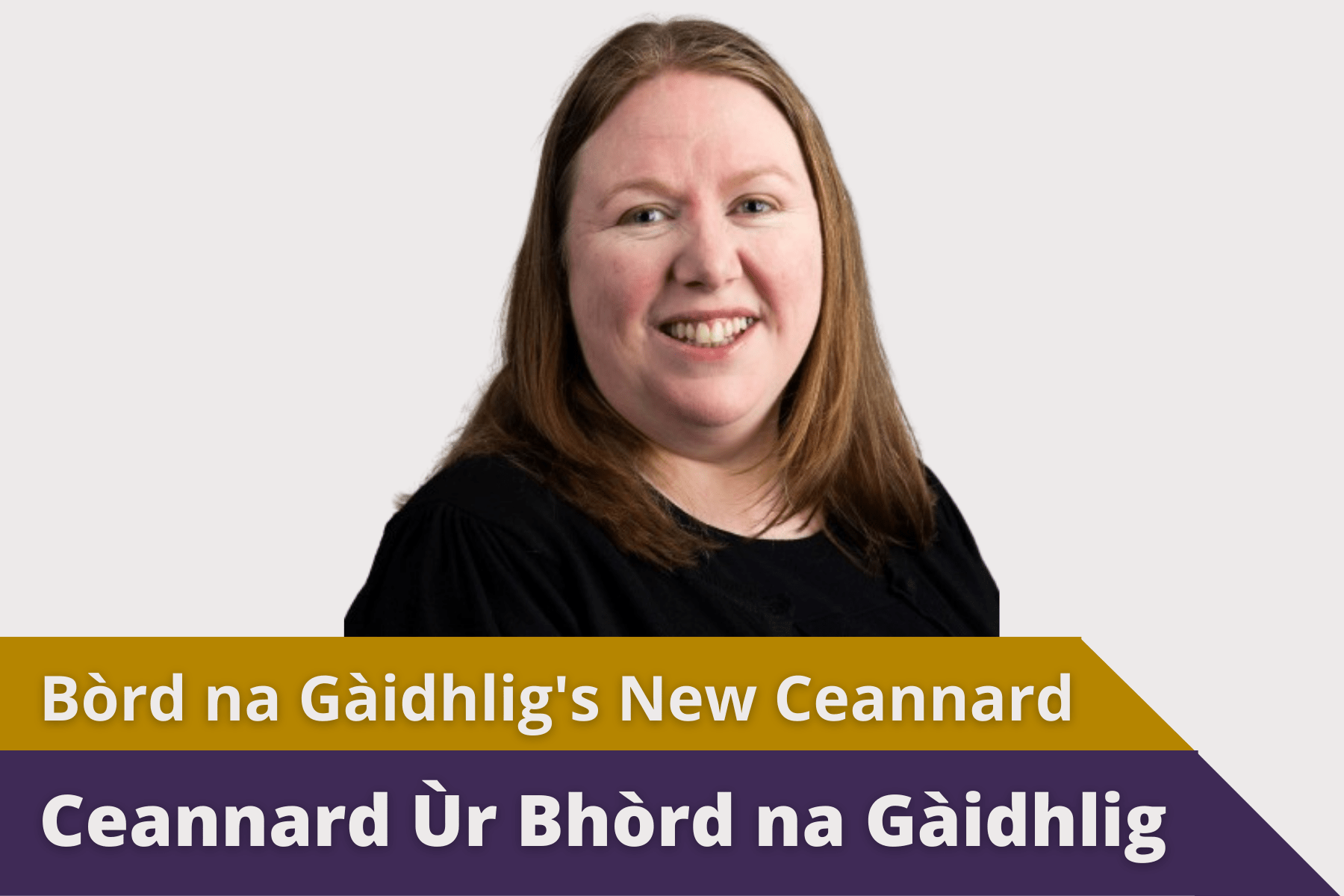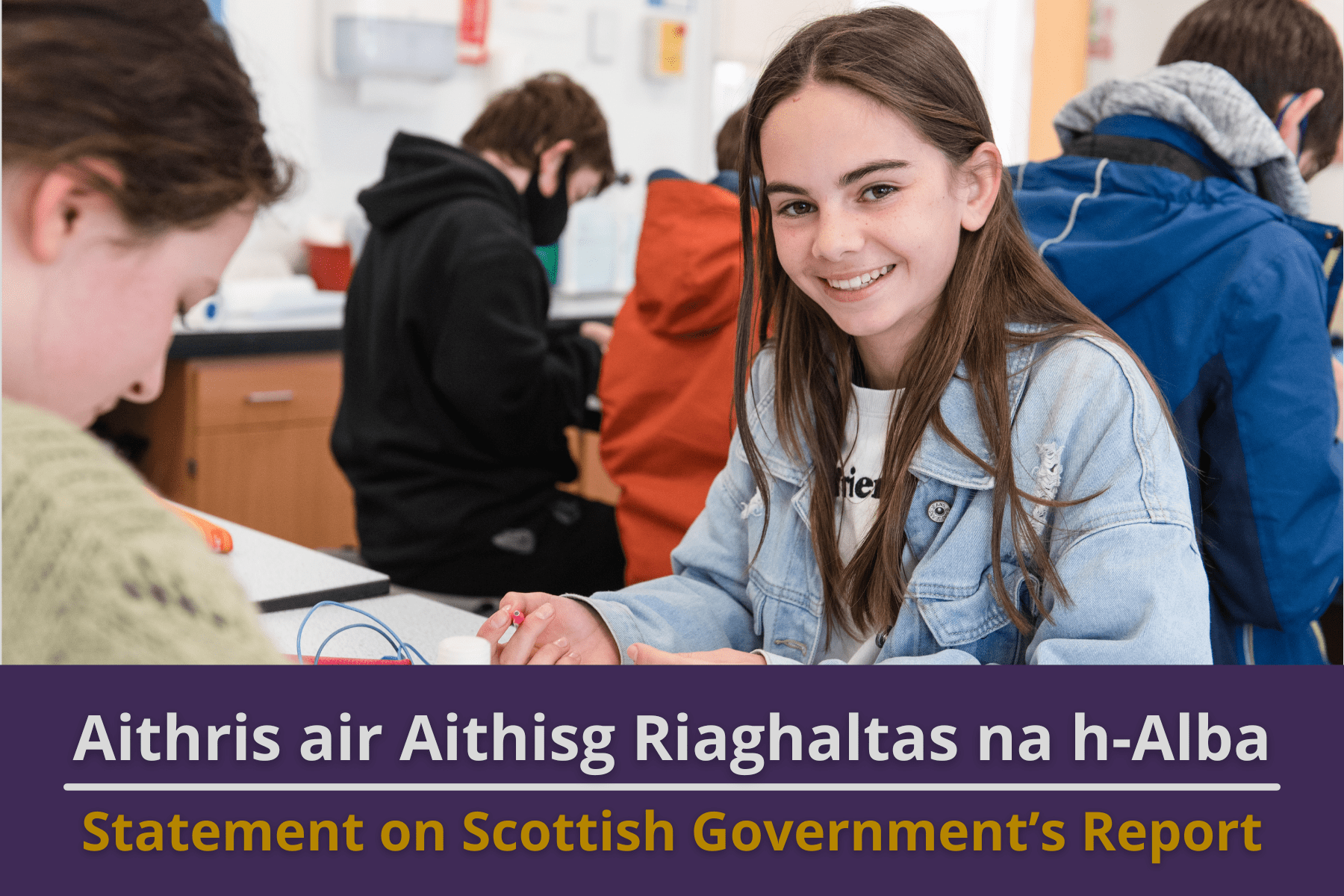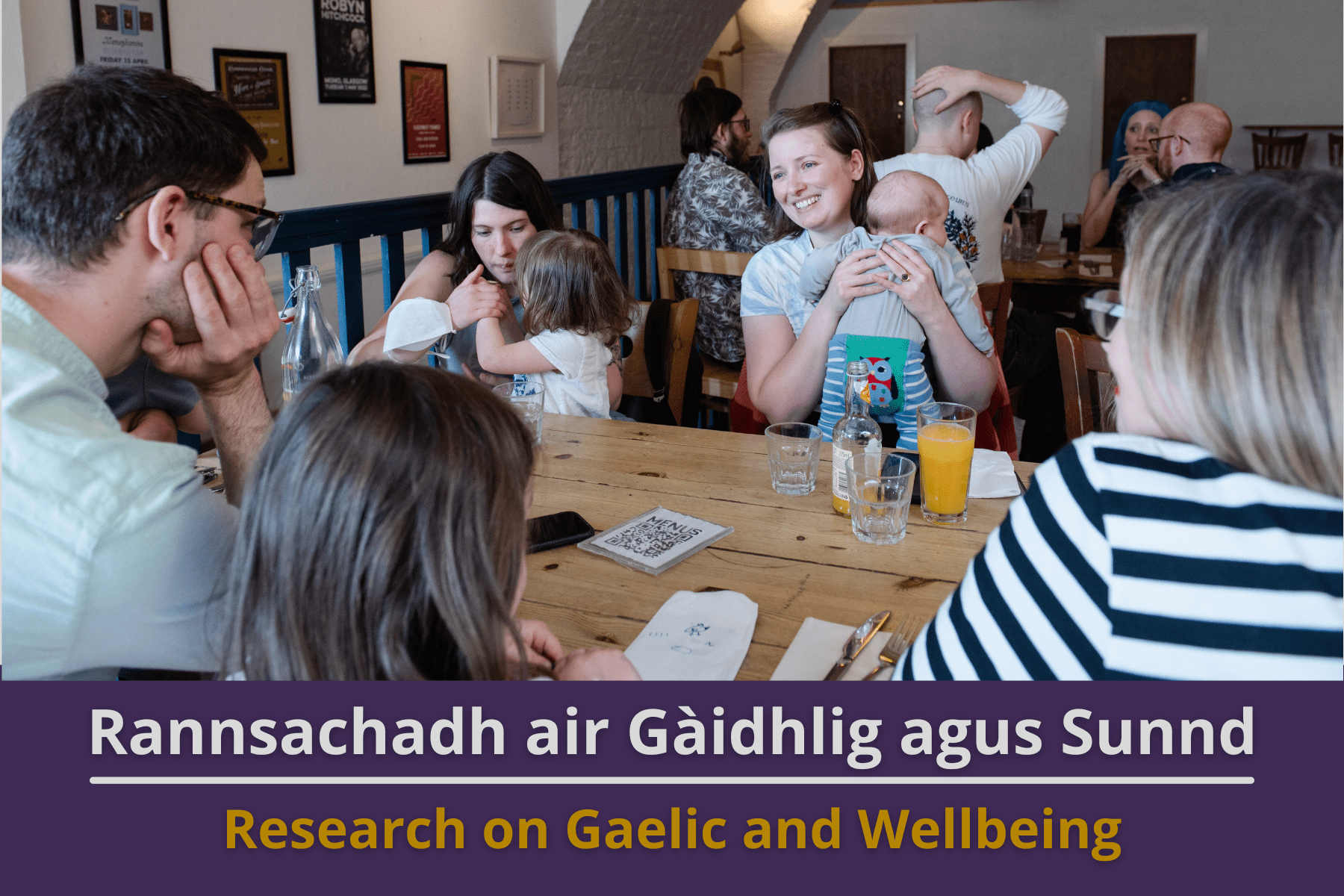Bòrd na Gàidhlig’s Senior Management Team gave evidence to the Education, Children, and Young People Committee this morning as they discussed the Scottish Languages Bill. Ealasaid MacDonald, Bòrd na Gàidhlig’s Ceannard (CEO), gave the opening statement and said:
“This is an important time for Gaelic, and decisions we take today will have a real impact on the future of our language. And by our language, I mean Scotland’s language. Bòrd na Gàidhlig welcome this Bill, a step forward in the legislative journey of Gaelic, and would strongly resist any suggestion that it should not proceed.
“For those of us attending the reception of 50 years of Sabhal Mor Ostaig on Thursday evening, the mood of celebration was aided by the news that the new Cabinet will include a Gaelic speaker who will have responsibility for the language. Literally someone who speaks and understands our language. We wish Ms Forbes well in her role and look forward to working with her.
“This will hopefully change the approach to Gaelic within the Government and see Gaelic considered across portfolios, where it can be a part of the solution, and allow a joined up policy approach. This would go a long way to strengthening the language.
“And, this Bill is part of the work in strengthening the language at a policy level. Key elements of the Bill, including the changes to the functions of Bòrd na Gàidhlig and standards for plans, will move us forward to ensuring the systems we have in place serve the language. And it is crucial that the education elements of the Bill, are enacted. Clarity is required on the central aspect, areas of linguistic significance, and the work of the commitee will be crucial in ascertaining this.
“However, this legislation will not solve the issues that we face at the community development level, which require a new and transparent investment model to deliver on the targets in the new National Gaelic Language Plan.
“I must reference our submission to the Financial Memorandum of the Bill, where we underline the importance of a financial model being a core element of the success of this legislation. As we state in our submission, “In order to achieve its potential impact it must be supported across Government with fair and equitable funding and commensurate with the statutory responsibilities of Bòrd na Gàidhlig.”
“Gaelic is more than a language. For many, myself included, it is a way of life, at the core of my being linked to my culture, heritage and aspirations for my family and my community. For Scotland, it is a key element of the society in which we live, our historical past and a key driver in our future. It is a social, economic and cultural asset. One that cannot be replaced . This legislation is a step forward. it won’t provide all the solutions we need, and a priority must be to address the inadequate funding model, but it will be a key tenet on moving the provisions for Gaelic forward.”
The meeting was recorded and can be viewed on the Scottish Parliament’s website.

